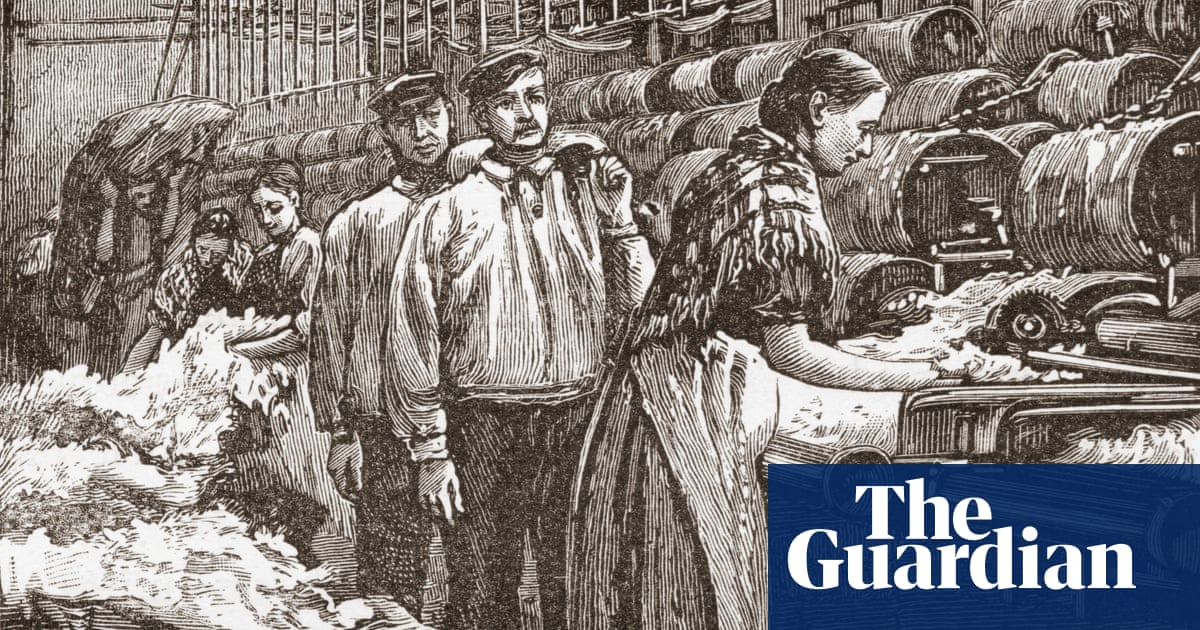
Rishi Sunak has spent 18 months in a honeymoon period as one of the UK’s youngest ever chancellors, riding high in public opinion mostly owing to a generous furlough scheme. He is serious, smooth and sleek, a teetotal family man – who makes an obvious counterpoint to Boris Johnson’s scruffy joviality.
But doubts are beginning to creep in on the right of the party following his big tax-and-spend budget that some felt more worthy of Gordon Brown than a supposed devotee of Margaret Thatcher and Nigel Lawson.
For Conservative MPs, many are frustrated that Sunak’s tensions with No 10 have not translated into a willingness to stand up to Johnson’s eagerness for public spending. Some are also irritated by Sunak’s constant polishing of his own brand, evident in his memes branded with personal signatures, rather than the party logo, and curated photos to show himself as a young, modern figure at the top of the party.
There are also grumbles about Sunak’s flashiness with money, as the son-in-law of a billionaire and one of parliament’s richest MPs, showing off his £90 pool sliders while about to present a budget that did not reverse the £80-a-month cut to universal credit.
Despite all this, the chancellor’s deliberate decision to emphasise sound money and economic competence means there is no outright mutiny over his budget. After the Johnsonian promises of the first half of Wednesday’s speech, Sunak was careful to include a Thatcherite passage in the final few minutes that held out the hope of tax cuts ahead of the next election. He went even further at a 1922 meeting of MPs, according to witnesses, who say he promised them: “Any further leeway is going on tax cuts.” But many backbenchers fear that room to manoeuvre will not be possible with the low growth and threat of inflation forecast in the years to come.
Robert Colvile, the director of the Centre for Policy Studies, who knows Sunak and helped to write the Tories’ 2019 election manifesto, says there are “definitely a lot of Conservatives upset about this stuff” and his own thinktank would like to “see a more robust growth agenda”, as well as worrying about the tax rises being “a massive hammer to our competitiveness as a country”.
But he points back to Sunak’s ultimate belief in attempting to balance the books – the decision to opt for tax rises or spending cuts rather than borrowing. “I think the argument that he made in his conference speech is worth taking seriously,” Colvile says. “Ideally you are a low-tax and fiscally responsible Conservative. But given the stormy seas in which we are sailing, it’s more important to be fiscally responsible.”
While crediting Johnson with the vision behind levelling up and a new economic model, Sunak’s dedication to building his own brand as a tax reformer was also clear to see. “The fact his ‘rabbit’ was a tax cut on booze despite not drinking [he is a practising Hindu] and he visited a trendy brewery immediately after the speech tells you everything about how plugged in he and his team are to image, more than any before him,” a former aide to the chancellor said.
It was also a move designed to show that he was willing to listen to the more than 100 MPs who signed a petition calling for a cut in duty on draught beer, many of them red wall 2019ers. The MP who led the campaign for it, Richard Holden, representing North West Durham, said the tax change had “ticked several boxes”, with a recognition that cutting duty on draught beer supported the “backbone of the community, local pubs, many of which have had a really tough time”. But he said it was the change to the universal credit taper rate, enabling the low paid to keep more of what they earn, that was even more well received among his colleagues.
Among the newer intakes, there are MPs who are more forgiving of the chancellor’s big-state-big-tax budget than the five former cabinet ministers from Chris Grayling to Theresa May who raised questions about its ability to encourage growth.
“We all know that there’s not much more taxation that the country can take. So does Rishi and he effectively said that,” says one. “But at the same time, we need spending on our constituencies and right now no one is going to complain about getting some more funds.”
If he is aiming for the top job after Johnson, and most Tory MPs have no doubt about his ultimate goal, Sunak will need to marry the concerns of the old-guard Tories fixated on the need for a small state, with the new intake whose seats depend on the success of the state’s intervention in Johnson’s “levelling up” project.
Sunak has not appeared to be as good at building up a “Treasury Support Group” – MPs who proselytised the message of previous chancellors from the backbenches in the chamber and media, partly because Covid has prevented the usual networks. However, his parliamentary private secretaries, especially his former special adviser, now an MP, Claire Coutinho, are well-liked and described as running a better parliamentary outreach operation than No 10.
One backbencher praised Sunak’s personal attentiveness, saying he had an uncanny ability to remember niche facts about their constituency and suggest people who could help with problems they had not even raised directly themselves with the chancellor. “He can do it all, he doesn’t need a Gary from Veep,” they said, referencing the aide who accompanies the fictitious US politician Selina Meyer and whispers in her ear about who each person she meets is.
Sunak has also been good at giving the appearance of listening to their concerns, holding business sessions with MPs ahead of the budget to hear their worries, while a trickle of colleagues have been invited for breakfasts and dinners.
The chancellor’s popularity in the parliamentary party is mirrored by his popularity with the membership, with Sunak consistently riding high in polls on the Conservative Home cabinet league table. However, this has begun to slip in recent months, and it is Liz Truss, the new foreign secretary, who has stolen his place at the top of the Tory popularity charts.
Truss has even been “outdoing him”, says one MP, with more wining and dining of colleagues since her elevation. With few domestic tough decisions to take and a lot of ready-made Instagram opportunities to look the stateswoman on red carpets across the world, the chancellor may find that his biggest rival is not next door – but the foreign secretary.












